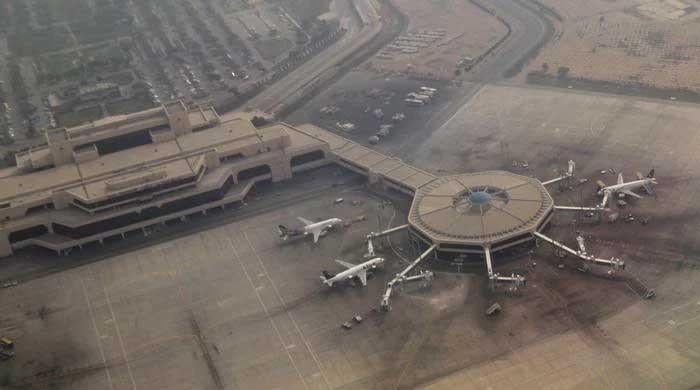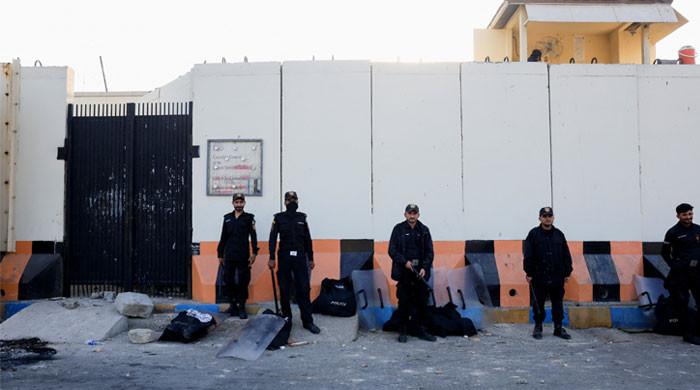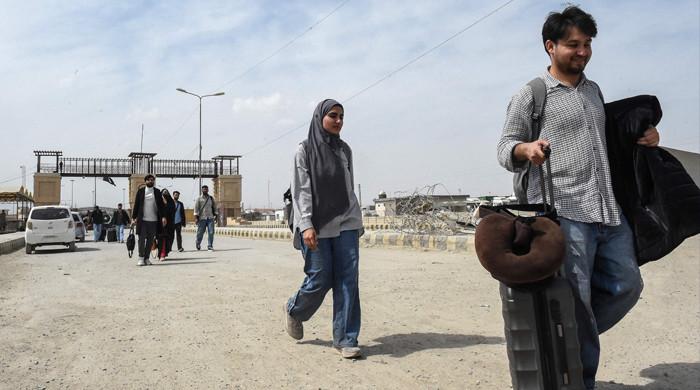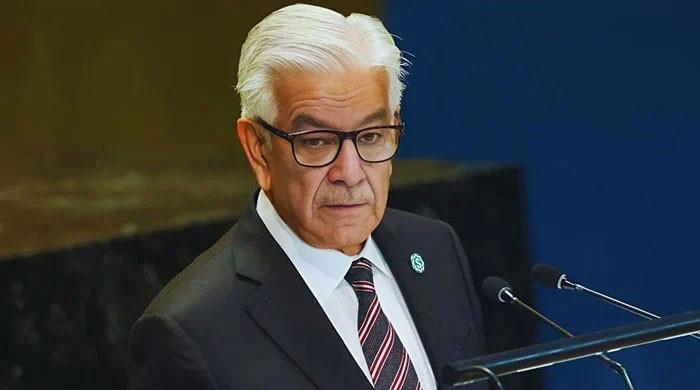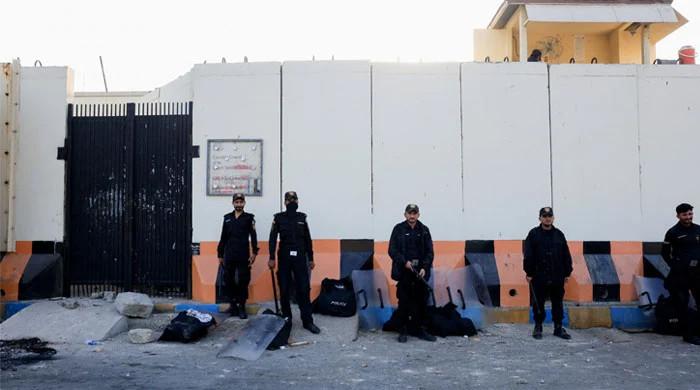600,000 pregnant women require urgent healthcare in Pakistan's flood-hit areas
Climate Change Minister Rehman terms floods "biggest climate tragedy", says 20.6m people still in need of support
October 13, 2022
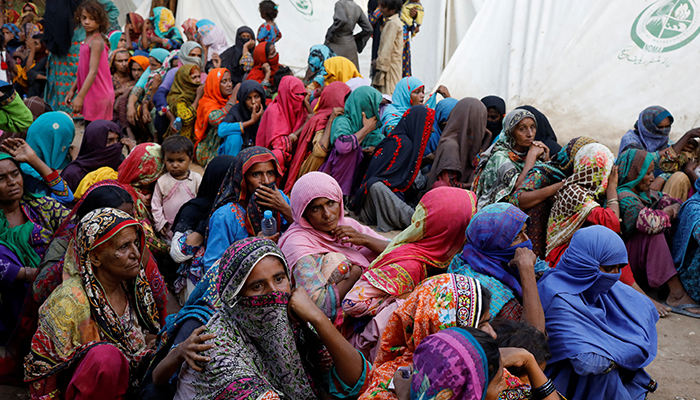
- Sherry Rehman terms floods "biggest climate tragedy".
- Federal minister says 20.6m people still in need of support.
- Record monsoon rains and floods have killed over 1,700.
ISLAMABAD: Federal Minister for Climate Change Senator Sherry Rehman Wednesday revealed that more than 600,000 pregnant women require urgent healthcare across flood-hit areas in Pakistan.
Record monsoon rains and glacier melt in northern mountains have triggered floods that have swept away houses, roads, railway tracks, bridges, livestock, and crops, killing more than 1,700 people and causing damages worth over $30 billion.
Health officials and experts have also urged the government to immediately initiate an inoculation drive for pregnant women in flood-hit areas as they are at risk of dying through several diseases — cholera, typhoid, Hepatitis E, and other preventable diseases — and can be saved through several available vaccines.
Climate Change Minister Rehman, in a press conference, said that Pakistan is currently facing the "biggest climate tragedy" the world has ever seen.
The minister said that the calamity will push an additional 15.4 million people beyond the poverty line. She added that nutrition needs also require a scaled-up response as 7.1 million people still are in need. Moreover, 70% of the affected population includes women and children.
'Massive number'
On the issue of pregnant women facing a severe health crisis, Jahan Zuberi — technical specialist and midwife at Mama Baby Fund (a non-governmental organisation) — said that 0.6 million pregnant women in flood-affected areas are a "massive number".
"Majority of these women affected by the floods live in rural areas. They have already experienced a healthcare crisis. Most of these women don’t have easy access to healthcare facilities," Zuberi — whose organisation has been working in Sindh and Balochistan since the floods struck — highlighted while speaking to Geo.tv.
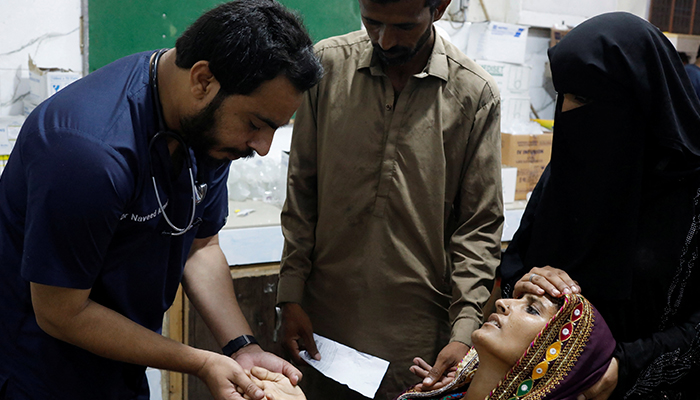
Zuberi — noting that there was already a health crisis in the two provinces — added that going to a clinic for these women means that they have to travel on foot for one or two hours.
"If they do have a clinic in their area doesn’t mean that it is staffed or has medication, so many women go without any care during their pregnancies and would deliver with an untrained daya (mid-wife) or their mother or mother-in-law at their house," she said.
Zuberi said that dealing with such a situation is only possible by creating a better structure moving forward as she urged the authorities to take the healthcare crisis more seriously.
She said that the organisation has seen 1,000 women and has given out 9,000 safe delivery kits, which have been distributed by different organisations and people on the ground — but they are nothing as compared to the requirement in the flood-hit areas.
Zuberi highlighted that continued funding and placement of structural changes moving forward is the solution to bring real change for these communities and "if we’re going to build them better than they were before".
'Biggest climate catastrophe of century'
In her press conference today, the climate change minister also said that the situation in Sindh and Balochistan is still "grim" because of stagnant floodwater, which still has 11 districts inundated.
As a result, the minister noted that the situation has made humanitarian relief efforts an enormous challenge. "It has become the biggest climate catastrophe of the century that the world has ever seen, let alone Pakistan."
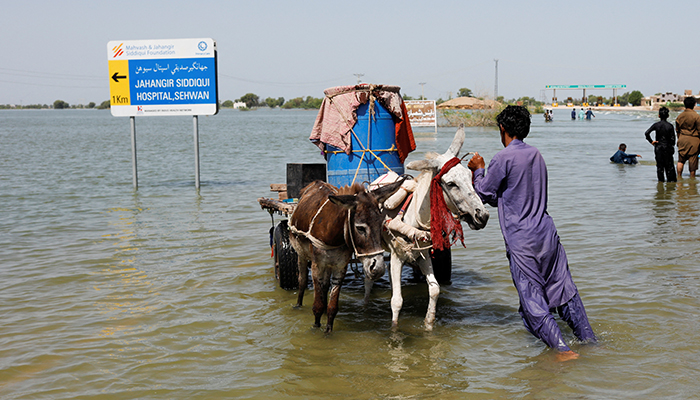
The minister said that the World Bank has calculated a "conservative" estimate of $40 billion in terms of flood losses, however, the damages from the recent deluge are more than that of 2010.
Shedding light on the severity of the floods, the minister said that an estimated 20.6 million people are still in need of support — more than the combined populations of Portugal and Switzerland.
"The task at hand for Pakistan is serving the size of the population that is equal to two countries, which is not easy. The rescue mission has now stopped, but we are still in the longest relief operation any country has ever seen," Rehman added.




